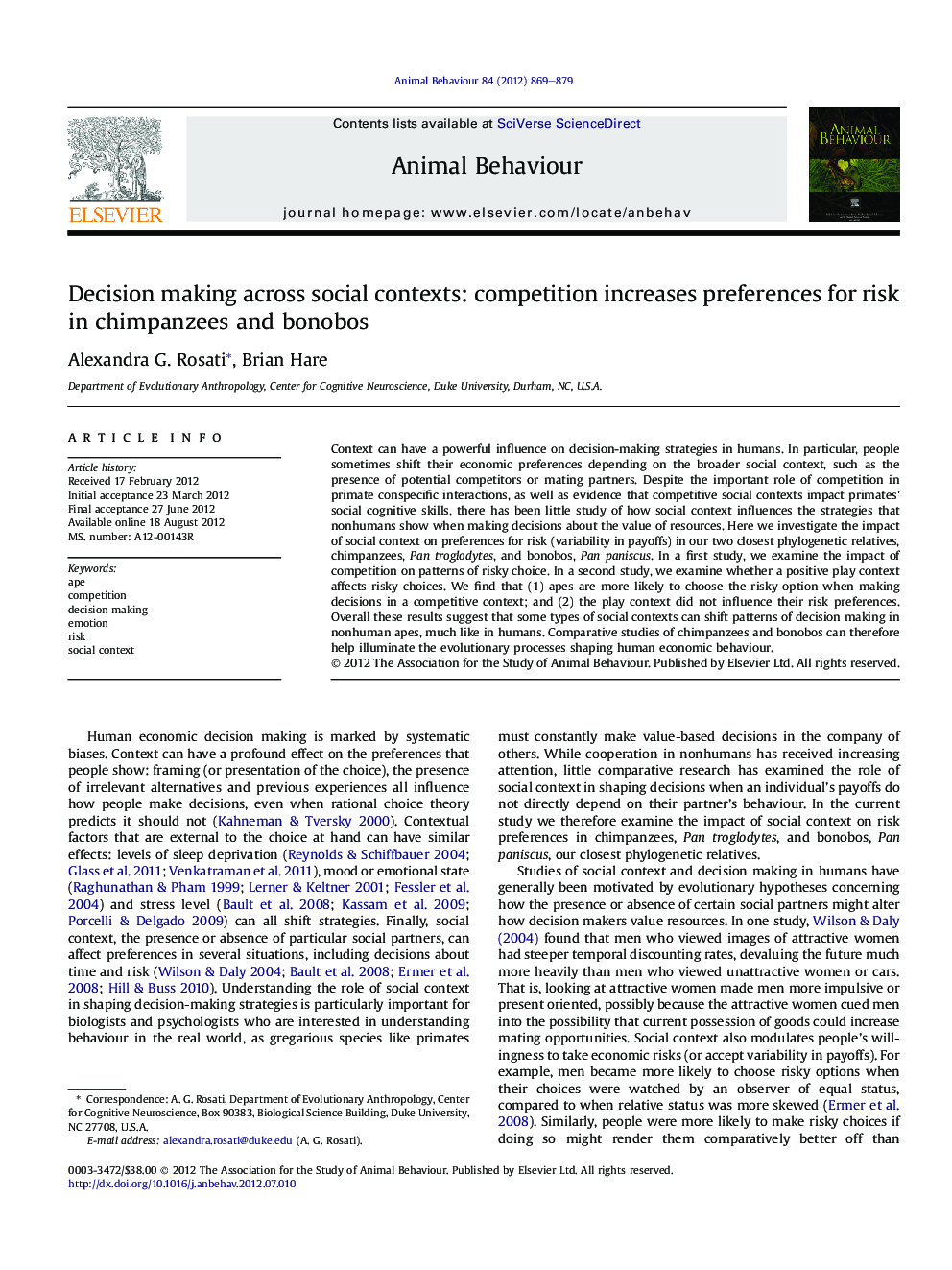| Article ID | Journal | Published Year | Pages | File Type |
|---|---|---|---|---|
| 2416524 | Animal Behaviour | 2012 | 11 Pages |
Context can have a powerful influence on decision-making strategies in humans. In particular, people sometimes shift their economic preferences depending on the broader social context, such as the presence of potential competitors or mating partners. Despite the important role of competition in primate conspecific interactions, as well as evidence that competitive social contexts impact primates' social cognitive skills, there has been little study of how social context influences the strategies that nonhumans show when making decisions about the value of resources. Here we investigate the impact of social context on preferences for risk (variability in payoffs) in our two closest phylogenetic relatives, chimpanzees, Pan troglodytes, and bonobos, Pan paniscus. In a first study, we examine the impact of competition on patterns of risky choice. In a second study, we examine whether a positive play context affects risky choices. We find that (1) apes are more likely to choose the risky option when making decisions in a competitive context; and (2) the play context did not influence their risk preferences. Overall these results suggest that some types of social contexts can shift patterns of decision making in nonhuman apes, much like in humans. Comparative studies of chimpanzees and bonobos can therefore help illuminate the evolutionary processes shaping human economic behaviour.
► We examined how social context affects decisions about risk (variability in payoffs) in chimpanzees and bonobos. ► Both species chose the risky option more frequently in a competitive context than in a neutral context. ► However, a positive play context did not influence risk preferences in either species. ► Competitive contexts may be especially important in shaping how primates make decisions about resources like food.
